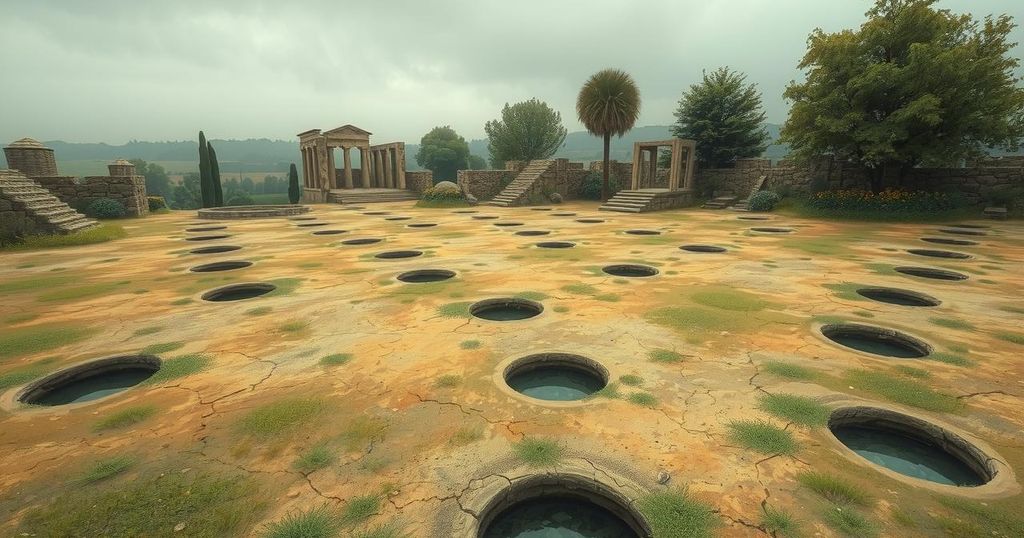Syria’s Treasure Hunting Fever: A Growing Concern

- Syria’s new treasure hunting boom follows the regime’s decline.
- Metal detectors, once banned, are now popular with treasure seekers.
- Palmyra is riddled with excavations from treasure hunters.
- Desperation due to poverty drives people to search for ancient artifacts.
- Dr. Al-Azm emphasizes need for reducing demand for looted antiquities.
Metal Detectors Now A Common Sight in Syria
A burgeoning business in Syria has arisen in the wake of the regime’s decline: the sale and use of metal detectors has skyrocketed. Once strictly prohibited by the Assad regime due to their potential military implications, these devices are now readily available as shops catering to treasure-seekers have sprung up across the country. According to reporter William Christou, in conversation with Michael Safi, the ancient city of Palmyra is now marred with holes from desperate local treasure hunters digging for ancient burial sites, hoping to find relics of a time long gone.
Poverty and War Drive Thirst for Ancient Artifacts
Christou elaborates on the context that has led to this unprecedented surge in treasure hunting. With the abhorrent aftermath of war leading to severe economic hardships, many Syrians find themselves turning to treasure hunting as a means of survival. As poverty levels soar, digging through the ruins of historical sites has become an enticing, albeit risky, way for countless individuals to seek out valuable artifacts and potentially improve their dire financial situations. The dependency on looting is a grim reflection of Syria’s many challenges in the post-war landscape, raising alarm about the preservation of its ancient history.
Need for International Action To Halt Looting
Dr. Amr Al-Azm, who is a Syrian archaeologist and the founder of the Athar Project, offers a critical perspective on the situation. He argues that the brutal tactics of the Islamic State have played a significant role in normalizing and accelerating the practice of treasure hunting among Syrians. Al-Azm insists that without concerted efforts to reduce demand for these looted antiquities in places like Europe and North America, the grave threats to Syria’s archaeological heritage will continue unabated. The need for international intervention and awareness is imperative to address this growing crisis, he stresses, underscoring the urgency of the situation as long as these treasures are left unguarded and the locals remain in search of them.
A palpable surge in metal detector use reflects the desperation of many Syrians searching for a means to survive in the aftermath of war. This activity not only highlights the broad socioeconomic challenges faced by the population but also raises serious concerns over the preservation of Syria’s invaluable archaeological heritage. Experts like Dr. Al-Azm are calling for urgent action from the international community to curb the demand for looted artifacts, stressing the risk of losing historical treasures for good if proactive measures are not taken soon.







